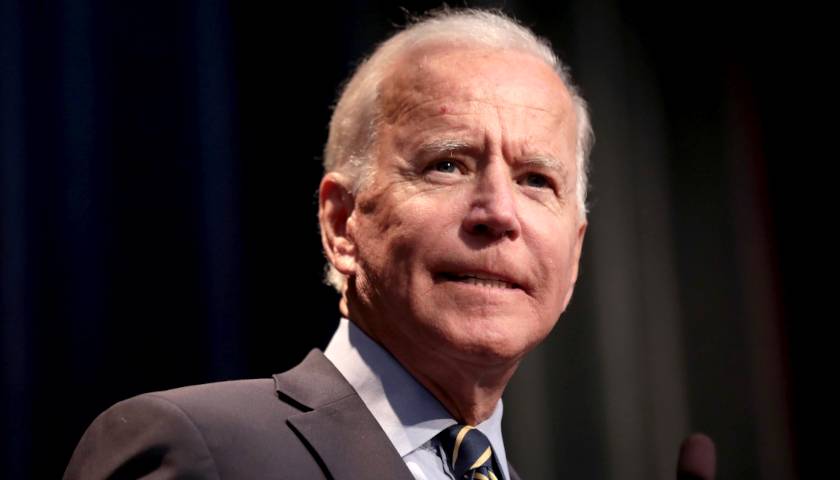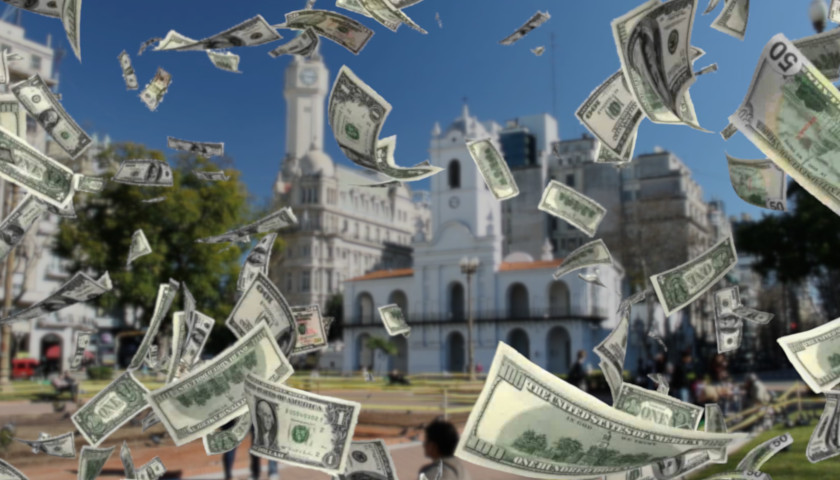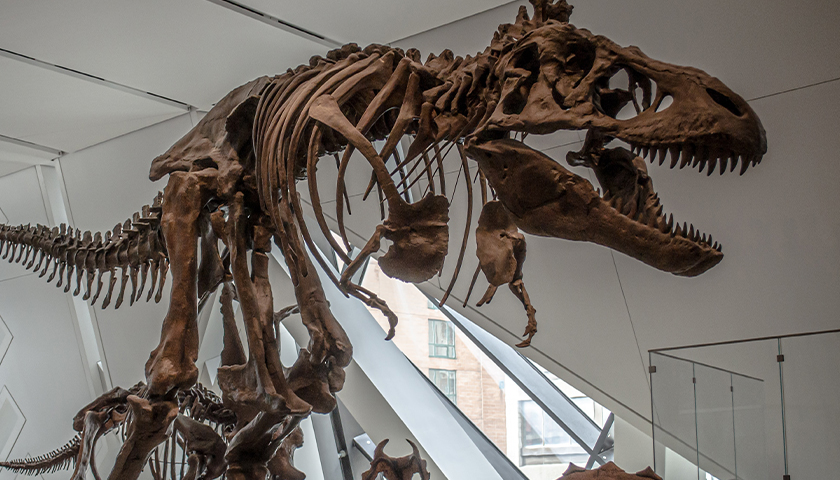by J.V. Caro China’s infiltration into agricultural IoT (Internet of Things) networks represents a critical yet underexplored dimension of its global technological strategy. Through key players such as Huawei and Alibaba Cloud, Beijing has embedded IoT technologies into agricultural systems in Latin America, Africa, and Asia. These initiatives, often…
Read MoreTag: Argentina
Commentary: Republicans Should Stop Complaining About Their Opportunities and Take Advantage of Biden’s Failures
After I offered a perfectly accurate negative summation of current market/industry conditions when speaking on a business venture I can’t yet discuss (but that will be quite relevant indeed to the interests of our readers), I received an admonishment from my business partner: “Stop complaining about your opportunities!” It’s an even more accurate response than mine.
All too often we spend our time grousing about the state of the world, and yet, the worse things get, the greater the opportunity grows to take control and make them better.
Read MoreRoberts and Milei Put the Globalists in Davos on Notice
While globalists, heads of large corporations, and officials in international organizations may consider democracy more of a spectator sport than a representative political system embraced by countries around the world, at least they were willing to allow some competition into the ring this year. In addition to its usual list of drastically tired global elites such as John Kerry, Bill Gates, and U.N. Secretary General Antonio Guterres, The World Economic Forum decided to invite a handful of conservative leaders to its annual meeting in Davos, Switzerland this past week. The opposition offered a reality check to those in desperate need of one, even if it wasn’t welcome. A couple of unabashed speakers even drew a little blood.
Read MoreCommentary: Argentina’s First-Ever Libertarian President
Voters in Argentina have elected a libertarian as president for the first time in their history. On Sunday, Argentina had its second round of voting, and Javier Milei received 55.69% of the vote against the Peronist Sergio Massa’s 44.31%. In a country that suffers 143% annual inflation and a poverty rate hovering around 43%, Milei has a long and difficult road ahead.
Milei’s win marks the first time in 40 years that someone outside Argentina’s two largest parties was elected. La Libertad Avanza, Milei’s 3-year-old political party, finally broke through the entrenched and archaic political apparatus. In a tweet back in June, Milei stated that Argentina was choosing between the old politics and the new ideas. During his presidential campaign, Milei pledged to tackle Argentina’s inflationary unhealthy economy by dollarizing the peso and minimizing government spending.
Read MoreArgentina Makes History, Voters Deliver Clear Mandate with Election of Free Market Libertarian Javier Milei by Double-Digits
Libertarian candidate Javier Milei of the “La Libertad Avanza” (Liberty Moves Forward) party, will become the president of Argentina on December 10. The free market capitalist obtained 55.86 percent of the votes, with 91.81 percent of the polling stations counted, a stunning victory for the right that resulted in the defeat of ruling party candidate Sergio Massa, who only garnered 44.13 percent of the votes.
Read MorePopulist Javier Milei Stuns the World, Wins Argentina Presidential Election
Libertarian candidate Javier Milei secured victory in the Argentinian presidential election on Sunday, defeating left-leaning economy minister Sergio Massa, according to The Associated Press.
Read MoreOutsider Libertarian Javier Milei Advances to Run-Off Presidential Election in Argentina
Argentina’s right-wing populist presidential candidate Javier Milei will head to a run-off after failing to win the first round of the presidential election on Sunday.
Milei and former security minister Sergio Massa will face off again in November in a runoff vote, according to the New York Times. The election has become a high point of contention as Milei has said he seeks to rid the country of leftist policies while his opponent, Massa, hopes to keep the left-wing administration that has held power since 2019, according to The Associated Press.
Read MoreTucker Carlson Travels to Argentina to Show How ‘Hyperinflation’ Devastated the Country’s Economy
https://tennesseestar.com/wp-content/uploads/2023/09/tucker-carlson-buenos-aires_840x480.jpg
Read MoreVenezuela, Cuba, and Argentina Have the Highest Inflation in Latin America
Venezuela, Cuba and Argentina registered the highest inflation in 2022 compared to other Latin American countries, according to figures from the Economic Commission for Latin America and the Caribbean (ECLAC) and BCC reports .
The report covers the period between October 2021 and October 2022, where the highest growth of the index is led by the Caribbean country, which accumulates an increase in inflation of 146%, exceeding that of Argentina by more than 50 percentage points (87 8%), the second on the list, and Cuba, which ranked third with 34.2%.
Read MoreFour Incredible Dinosaur ‘Graveyards’
Over their 165 million-year reign on Earth, hundreds of billions of dinosaurs lived and died. Occasionally, they did the latter en masse, making it much easier for us to find their fossilized remains and examine them. Concentrated areas of dinosaur death have become colloquially known as “dinosaur graveyards”. The following are some of the most remarkable.
1. The Hilda Mega-Bonebed. Around 75 million years ago, a herd of Centrosaurus that may have numbered in the thousands was swept up in a torrential flood that inundated the lowlands of what is now Alberta. The hapless, top-heavy dinosaurs were dragged into river channels that flowed into the shallow inland sea which cut North America in two, where they drowned and accumulated in a macabre mass. Scavengers feasted upon their fleshy remains.
Today, these centrosaurs’ resting place is a jumble of bones roughly the size of 280 football fields in southern Alberta’s Dinosaur Provincial Park, a goldmine of ancient history. It is so large that completely excavating it would be impractical.
Read MoreMexico Begins Its Own Road to Perdition with the Election of Andrés Manuel López Obrador
by Victor Mata All Latin-Americans at some point ask themselves: Why is no Latin American country as well-developed as the United States? The answer is probably not related to our weather or a lesser disposition to work, as many have tried to claim. The answer is probably simpler: A socialist culture…
Read More










